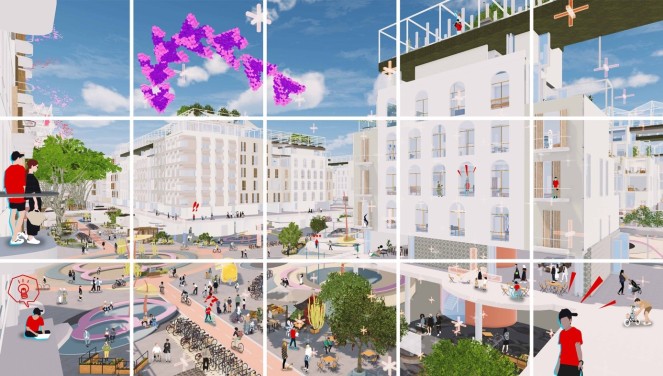| Project name | How and why cities are changing through artificial intelligence |
|---|---|
| Acronym | scAInce |
| Project partner |
|
| Grantor | European Research Council (ERC) |
| Forschungsfeld |
interdisziplinary (E+E > Energy + Environment, I+I > Information + Intelligence M+M > Matter + Materials) |
| Duration | 2023 – 2028 |
| Project content |
Can technological change lead to more sustainable living in our cities? This is the question addressed by the research project “scAInce”. Under the leadership of Professor Eva Kaßens-Noor, researchers at TU Darmstadt's Institute of Transportation Planning and Engineering are investigating how cities change that want to solve their economic, ecological and social problems with artificial intelligence. The project is supported by the European Research Council (ERC) with a prestigious ERC Consolidator Grant of around two million euros over five years. More than half of the world's population lives in cities. This is where ecological, economic and social challenges are concentrated. How are these to be overcome? One common approach is to use technology. “Cities are at the center of introducing new technologies,” says civil and environmental engineer Eva Kaßens-Noor. “But they are also, paradoxically, the biggest emitters of greenhouse gases, sites of serious inequalities, and engines of economic growth.” One approach to solving urban sustainability problems is so-called smart cities, or “intelligent” cities in which modern technology such as artificial intelligence (AI) is used to make particularly efficient and sustainable use of existing resources. But are smart cities really more sustainable? Is the use of technology helpful or does it create new, possibly even greater problems? Many questions to which the “scAInce” project aims to find answers. The influence of AI on urban systems The researchers want to find out how artificial intelligence and the associated technologies have already changed urban systems, whether they can change urban systems at all and how they will change urban systems in the future, and whether technological change actually leads to more sustainable living in cities. Among other things, the sustainability of cities that have adopted smart city technologies in the past and the impact of privately operated AI solutions on sustainability through before-and-after studies will be examined. In addition, research is being conducted and developed in the open-source virtual city by Spectra Studios LLC and NUMENA GmbH. Spectra enables its inhabitants around the world to change their virtual environment together. The goal is to create a model that explains why and how cities are changing through the use of artificial intelligence and related technologies. Cities could then use the developed model to decide which technology to use for their specific needs, based on their sustainability goals. |
Department of Civil and Environmental Engineering

scAInce research project
How and why cities are changing through artificial intelligence
scAInce research project
How and why cities are changing through artificial intelligence
Research project : scAInce





